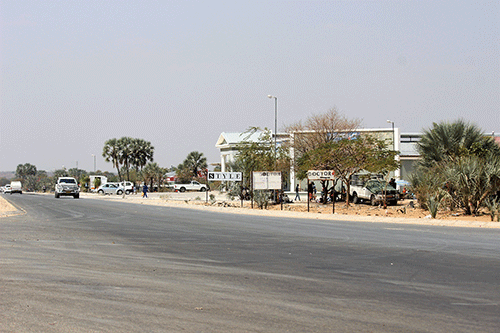The Kavango East Regional Council operates without a strategic plan, extended strategic plan, annual plan or reviews, ingredients key to the success of such an institution, the auditor general has said.
“An approved annual plan, strategic plan and performance management system (PMS) are all critical for the success of an entity. These plans provide direction, allocate resources efficiently, enable informed decision-making, promote accountability, and ensure legal and regulatory compliance,” said auditor general Junias Kandjeke (AG) in the council’s latest report.
This reality is laid bare in the AG’s report of the region, which was submitted to the National Assembly last week.
It covers the financial years (FYs) 2020, 2021, 2022 and 2023.
All Kavango East financial statements for the periods under review were not submitted prior to the finalisation of the report before Parliament.
The report was published earlier this month.
During his examination, Kandjeke gave the entity an adverse audit opinion, which essentially means its financial statements do not present its financial health fairly.
“The financial statements do not present fairly, in all material respects, the financial position of the Kavango East Regional Council as of 31 March 2019, and its financial performance and cash flows for the year then ended,” he found.
What furthermore worries the AG are the key performance indicators (KPIs), where it was found that the council had no strategic plans in place.
“The auditors could not perform any tests on the implementation of the extended strategic plan for the period 2023-2025 and the effectiveness of the PMS, as the council does not have an approved strategic plan in place, and the PMS is dependent on the approval and implementation of the strategic plan,” Kandjeke says in the report.
Chiefly, the council failed to submit its old strategic plan (2017-2022), extended strategic plan (2022-2025), annual plan (2023-2024), as well as the annual reviews for 2022-2023.
“It is recommended that the council should ensure that the extended strategic plan is approved and implemented as a matter of urgency,” the AG added.
The audit also found that the council made adjustments by way of journals, affecting its retained earnings’ balance amounting to N$21.9 million.
However, no detailed explanation or supporting information was provided regarding these adjustments.
Furthermore, the auditors noted that there was no indication that the adjustments in question were approved by council.
To address the anomaly, Kandjeke proposed that council ensures that journals are approved by council. Council, he hastened to say, must provide supporting information for all adjustments made as well as all journals passed which may affect balances in the financial statements.
“It is further recommended that when council makes retrospective restatements of errors in the financial statements, that details of these restatements are clearly provided in the notes of the financial statements,” the AG directed.
Poverty
Speaking at a recent workshop, Kavango East governor Sirkka Ausiku was pushing for more local authorities to be introduced, but said a different approach must be taken to address multidimensional poverty in the region.
She said the workshop, facilitated by the urban and rural development ministry, sought answers to why the region is classified to be the poorest in the land.
“Why is the multidimensional poverty the highest in our region at 79.6%, although the region is blessed with a perennial river and fertile land; with green schemes as well as the Kavango cattle ranch that can create jobs, especially for our youth; with the opening of the Rundu Meatco abattoir?’’ Ausiku wanted to know.
She also questioned why 99% of Kavango West is rural, with only one urban centre, Nkurenkuru town, and the Katwitwi settlement, stating that rural areas should at least have more basic infrastructure like water provision, electricity, roads, communication network, schools and health facilities.
“Why can the region not have two or three town councils, village councils and more settlements? Why are all the growth points or big villages in the region not having electricity, including the recently- declared settlements by the Kavango West Regional Council?” she continued asking.
The regional council recently declared Rupara, Mpungu, Bunya, Ncamagoro, Katjinakatji, Tondoro, Nankudu, Ncuncuni, Ncaute and Kapako as settlements.
The regional political head furthermore lamented the lack of road infrastructure development in the region, and expressed worry that communities still fetch water from the river, with each encounter coming with the risk of being attacked by crocodiles.
– emumbuu@nepc.com.na



